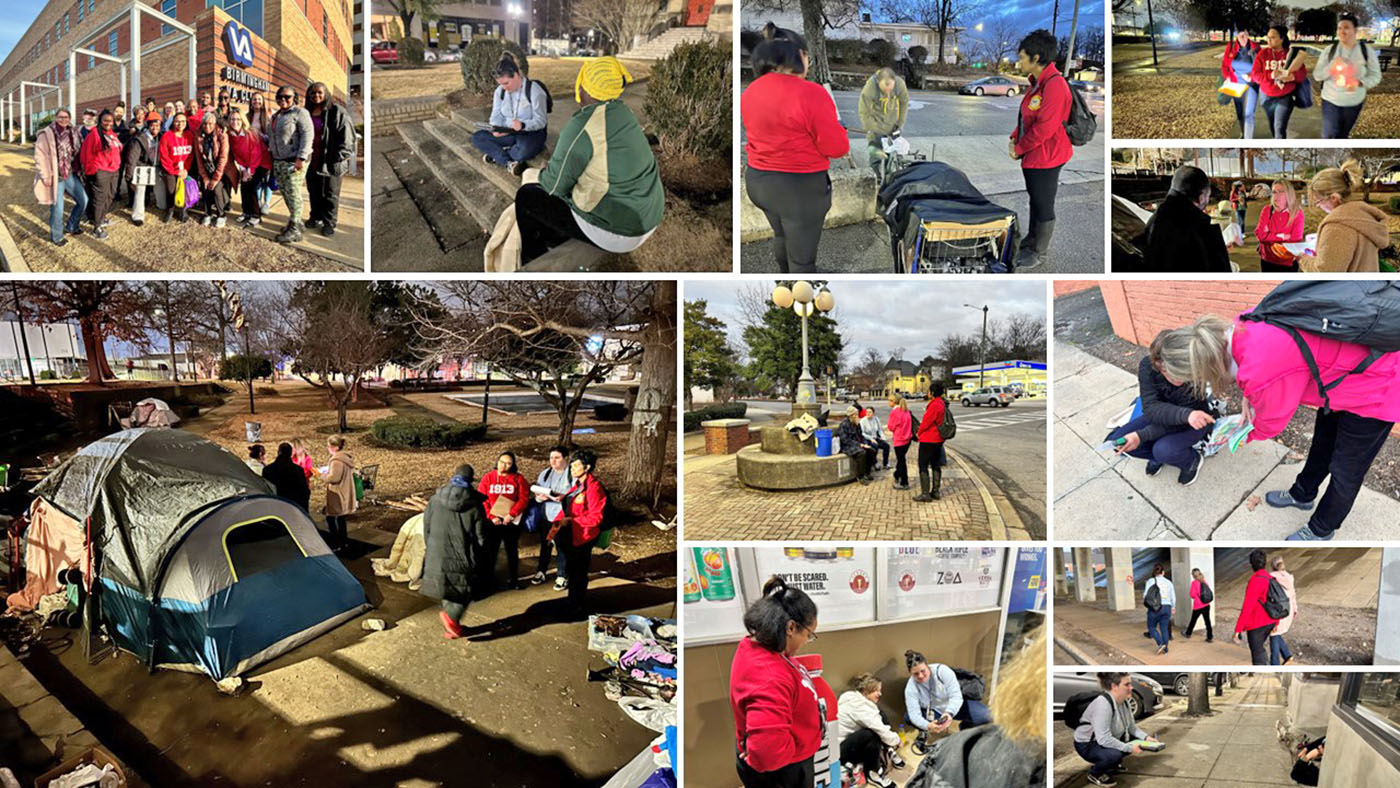On a single night in January, a dedicated team from Birmingham VA embarked on a crucial mission along with scores of others. Their goal was not only to count the homeless population but also to identify Veterans among them as part of the annual Point in Time (PIT) Count.
Armed with clipboards, flashlights and a deep sense of purpose, the volunteers fanned out across their assigned areas of the city, venturing into alleys, parks and under bridges, places that have become makeshift homes for the city’s most vulnerable.
What is the Point in Time?
The PIT Count is a method used in the United States to estimate the number of homeless people. It involves a count of sheltered and unsheltered homeless persons on a single night in January. The PIT Count is conducted by local agencies called Continuums of Care, on behalf of the United States Department of Housing and Urban Development (HUD).
More than 20 staff volunteered to support the PIT Count for Birmingham VA, a fraction of the number of volunteers supporting the overall PIT Count across the City of Birmingham. As they moved through the shadowed streets, the volunteers encountered faces etched with the hard lines of life.
Each person they met was more than just a number for their count. They were individuals with stories and struggles. The volunteers listened intently capturing demographic information and piecing together the narrative of each person’s journey to homelessness.
Data worth knowing
The volunteers’ conversations revealed tales of domestic abuse, the grip of past incarcerations, a struggle for employment and the high cost of living.
Knowledge of the number of homeless and of homeless Veterans helps identify the services needed to continue to develop and request access to needed services. HUD also uses the data from PIT counts to evaluate the effectiveness of local agencies’ efforts to address homelessness and to determine funding amounts for them.
The data collected helps in understanding the scope and nature of homelessness, shaping public policy and allocating resources effectively to address the issue.
Numbers matter
During the PIT Count, the volunteers’ resolve to help grew stronger. They knew the data collected that night would be vital in shaping policies and programs to address the myriad causes of homelessness, particularly among Veterans.
Volunteers gave blankets, toiletry items and snacks to each person they encountered. Birmingham VA volunteers met 63 people living in conditions not considered a home. Of that number, seven identified as a Veteran, some of whom currently take advantage of VA health care.
Topics in this story
Link Disclaimer
This page includes links to other websites outside our control and jurisdiction. VA is not responsible for the privacy practices or the content of non-VA Web sites. We encourage you to review the privacy policy or terms and conditions of those sites to fully understand what information is collected and how it is used.
More Stories
Bob Jesse Award celebrates the achievements of a VA employee and a team or department that exemplifies innovative practices within VA.
The Medical Foster Home program offers Veterans an alternative to nursing homes.
Watch the Under Secretary for Health and a panel of experts discuss VA Health Connect tele-emergency care.







Hilariously we are homeless and unable to find a way to get to the appointments you all deem necessary why don’t you travel to us and how can you expect the people honestly needing the services to make 45 min trips to get help with out any resolution bc of the inability to get to your offices???
I would love to know if there’s information being gathered like this on Veteran homelessness in the Denver, Colorado region.